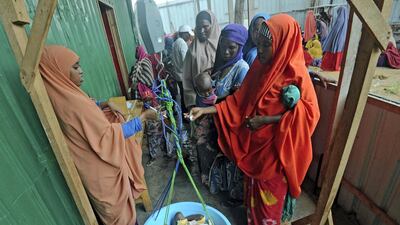Rising levels of starvation across the world are emblematic of the collective failure of our international system. A United Nations report this week reveals that global hunger has risen for a third consecutive year, with more than 821 million people suffering from chronic starvation and a further two billion experiencing moderate or severe food insecurity.
There are myriad reasons for this, which make it harder to fight. Conflict and resource mismanagement in Iraq and Palestine, for instance, have left millions without adequate food supplies. In countries such as Afghanistan, Yemen and South Sudan, conflict conspires with climate change to ravage food security. It is time for the international community to intervene and ensure that everyone has access to nutrition.
By most metrics, the world has never been richer, but those riches are not trickling down to those most in need. The sustainable development goals, agreed in 2015 by all the member states of the UN, promised to eliminate hunger globally by 2030. Nearly a third of the allotted time has passed and we are even further from that goal. As Herve Berhoosel, senior spokesman for the World Food Programme, told The National: "The world is not on track to meet the goals of ending hunger and ensuring access to food for all."
While hunger and starvation rise, so too does the number of school-age children globally who are overweight or obese. Obesity should not be conflated with wealth, since it is a form of malnutrition in itself and affects economically disadvantaged people in the developed and developing world with poor diets. However, serious questions must be asked about the impact of growing economic inequality across the globe.
This battle matters not just for those most in need, but for us all, because food security is a vital pillar of general security – regions cannot be stable unless their people enjoy access to sufficient food. With the global population steadily rising, and no sign of a decline in birth rates, this problem will only get worse if serious action is not taken.
Governments must think hard about what they can do to reduce hunger across the globe. Of course, ensuring innocent children do not die from starvation should be a point of unity for the international community. Certain countries, like the UAE, have generous international aid programmes, but many countries are not meeting their targets.
In light of the UN’s latest revelations, this is a moment to pause and think of all those who, owing to climate change, poverty or conflict, cannot feed themselves or their children. Meanwhile, those of us lucky enough to never face such a plight should recognise our responsibility towards our fellow human beings – and do what we can to help.

